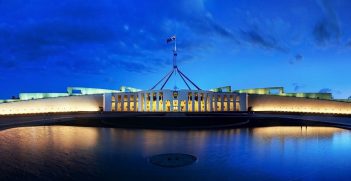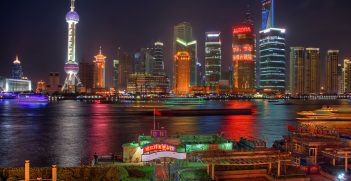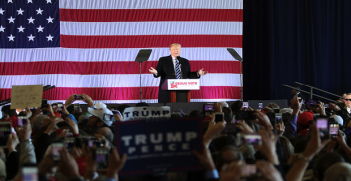Duterte’s Crusade for Peace in the Philippines

The Philippines’ new president Rodrigo Duterte has made headlines because of his controversial policies and fiery rhetoric. With barely three months in office, his all-out war against illegal drugs has led to thousands of deaths. However Duterte has been leading another equally important crusade, one that seeks to win a sustainable peace with the Communist Party of the Philippines.
While media coverage has been fixated on Duterte’s battle against drug lords, his newly elected government has immediately reinvigorated the peace process by meeting Communist Party of the Philippines (CPP) negotiators in late August. The goal is to agree to a lasting settlement with the CPP, which has sponsored a lingering insurgency fuelled by political beliefs. The outcome of the Oslo meeting was seen as promising. Both parties agreed to remain faithful to previous agreements, provide safety and immunity guarantees to CPP participants in the peace process, and commit to quickly craft a mutually-agreed reform agenda as well as end hostilities.
Can the tough-talking firebrand president win the peace? What challenges lie ahead for the revived peace talks? As peace negotiations are off to a good start, they must be jointly pursued with other political reforms. In addition, the process must be inclusive and with the orientation towards restorative justice and full integration. This requires sustained credible commitment, political will, and addressing the primary causes of the conflict.
Asia’s longest-running insurgency
A remnant of the Cold War, the CPP was a by-product of violent class conflict in the Philippines. Rampant poverty and political oppression led Maoist-inspired intellectuals to form a movement now considered to be the longest-running communist insurgency in the world. While it does not seriously present itself as a political alternative, it has been engaging in a protracted and taxing war through guerilla tactics.
Talks with the communists started after 1986 but a peace agreement has remained elusive. In one analysis, there is a clear discontinuity in the adopted policies of the Philippine government toward the communists. Some leaders have pursued peace negotiations while others have sought to secure a military victory against the CPP. The mutual lack of trust and negative perceptions did not help the peace talks. This effectively prevented a peace agreement acceptable to both sides.
Duterte as game-changer?
The overriding factor is Duterte’s strong political will and sincerity to end the conflict. His campaign promises included engaging the communists and promising to end the insurgencies in the country at the soonest possible time. Hailing from conflict torn and economically poor Mindanao, Duterte knew too well that there can be no development without a peace that is formed through an inclusive process.
When he came to office, the new president immediately constituted his peace team. They are seen as credible choices since they were responsible for the 1995 agreements. But before this, Duterte reached out to the CPP and in an unprecedented move, offered cabinet positions to its members. The CPP’s recommendations were appointed as cabinet secretaries on agrarian reform, poverty reduction, and social welfare. Finally, he declared a truce with the communists. While this was temporarily lifted following a skirmish, both parties agreed to cease hostilities last month.
What makes Duterte a credible peacemaker? Apart from the immediate attention he has given toward fulfilling this promise, the President believes that no one should be punished by the state simply because of political beliefs. He also thinks that government should pay attention to the poor regions of the country, an issue raised by the communists. Duterte’s appreciation of the complex governance challenges of the country and how an insurgency can spoil the gains of reforms motivates his peace policy.
His enthusiasm to engage the CPP also stems from his contempt for the country’s oligarchical elites and the colonial legacies of the United States. The communists have long considered these two political actors as its natural adversaries. Duterte’s tirade about the US during the recently concluded East Asia Summit in Vientiane might have violated diplomatic norms, but it also revealed his willingness to challenge American imperialism and its human rights doublespeak. These topics might be taboo to the Filipino political elite but appear to the CPP to be legitimate grievances.
Comparative evidence from the experience of other countries also favours Duterte’s hardline approach in winning the peace. Not only does he display credible commitment, he also feels personally responsible for ensuring the negotiations will be a success. Strong leadership tends to reverberate down to the negotiating team. As Duterte’s agenda seem to focus on bringing about swift change, there will be increasing pressure on the government side to pursue all means in producing an agreement. This seriousness can also affect how the CPP would present itself, negotiate, and do their part to arrive at a mutually-acceptable compromise.
Challenges ahead
The road to lasting peace in the Philippines will continue to have many challenges. First, the CPP must also be serous about the peace process. Failure to follow commitments will erode confidence that it wants to end armed struggle. Second, the peace process needs to be inclusive in terms of actors and issues for discussion. There will always be a threat of breakaway groups spoiling the talks. However, both sides must be sure to keep their armed forces at bay and guarantee that they will respect the interim truce.
Third, as the Philippines is a signatory to the Rome Statute of the International Criminal Court, issues of human rights atrocities need to be addressed. This is currently a thorny issue for the Duterte presidency and the CPP has yet to open itself to a discussion of its own human rights record. As the Colombian experience showed, a peace approach that includes transitional justice can further legitimise the process and ensure that the pact conforms to international human rights law. A truth commission can identify ways to implement restorative justice, rather than adopt a simple policy of general amnesty.
Finally, the Duterte administration needs to pursue its peace process in the Southern Philippines simultaneously. In addition, it should also make headway in its pursuit of political reforms such as institutional changes that allow popular participation, agrarian reform, democratic deepening, and economic empowerment of the peripheral regions of the country. A selective piecemeal strategy will not work since the grievances that motivate the communist insurgency are embedded within an elitist political regime and a highly unequal society. Only then can the peace that Duterte seeks to achieve be a lasting one.
Aries A. Arugay is Associate Professor of Political Science at the University of the Philippines in Diliman and Executive Director of the Institute for Strategic and Development Studies, Inc. He tweets at @ariesarugay. This article is published under a Creative Commons License and may be republished with attribution.





